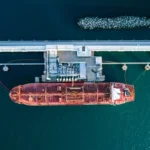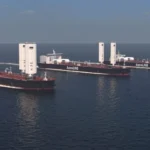How STCW and BOSIET shape sustainable maritime operations

Modern shipping, offshore wind energy, and marine transport are advancing toward a greener future. New technology, cleaner fuels, and global sustainability policies have become central to maritime operations. Yet no amount of innovation can replace the role of human awareness and safety readiness. Every sustainable voyage begins with a well-trained crew capable of preventing accidents and responding effectively when emergencies occur.
The maritime workforce sits at the heart of ocean protection. Skilled seafarers, engineers, and offshore workers act as the first line of defense against pollution, equipment failures, and accidents that can threaten marine ecosystems. That’s why international standards such as the STCW and BOSIET training programs are essential, they equip maritime professionals with the skills to work safely while supporting the wider sustainability goals of the industry.
Training that builds responsibility at sea
Environmental protection often starts with prevention, and safety training helps make that possible. When seafarers know how to respond to fires, manage confined spaces, or react during equipment malfunctions, they reduce both human and environmental risks. This proactive approach is critical for maintaining cleaner seas and safer operations.
The Standards of Training, Certification and Watchkeeping (STCW) Convention, established by the International Maritime Organization (IMO), sets a global benchmark for maritime education. STCW courses are designed to ensure that anyone serving aboard a vessel possesses a shared set of safety skills and knowledge. These programs cover essential areas such as:
- Personal survival techniques to handle abandon-ship and rescue situations.
- Fire prevention and firefighting using approved methods and modern equipment.
- Elementary first aid to treat injuries before they escalate.
- Personal safety and social responsibilities that foster cooperation and effective communication at sea.
Beyond compliance, this training creates a culture of accountability and awareness that directly supports sustainability. By minimizing accidents, crews prevent pollution and extend the life of vessels and onboard systems, both key contributors to environmental protection.
BOSIET training and offshore sustainability
While STCW certification applies broadly across maritime operations, the offshore industry relies on a more specialized program, BOSIET, or Basic Offshore Safety Induction and Emergency Training. Offered globally by accredited providers such as FMTC Safety, BOSIET is an OPITO-approved program developed for offshore workers in sectors such as oil and gas, renewable energy, and marine infrastructure.
Participants learn how to manage emergencies that can occur in offshore settings, including fires, helicopter evacuations, sea survival, and emergency first aid. The program also introduces workers to environmental awareness and the importance of safety compliance in minimizing risks to marine habitats.
Offshore wind farms, oil platforms, and drilling installations operate in delicate ocean environments. A single incident can cause significant harm to marine life. BOSIET training teaches participants to recognize hazards early and apply safety procedures that prevent accidents before they escalate. This kind of knowledge directly supports sustainability by ensuring operations are not only safe but also environmentally responsible.
Human skill is essential for sustainable operations
Automation and digital tools have made ships and offshore platforms more efficient, but human skill remains irreplaceable. Technology enhances awareness, but the ability to interpret, react, and make decisions in critical moments depends on trained professionals.
Both STCW and BOSIET programs emphasize teamwork, leadership, and decision-making under pressure. Trainees learn how to think clearly in emergencies and coordinate with others to prevent loss of life or environmental damage. A crew trained in these competencies doesn’t just protect itself, it helps maintain the overall health of our oceans by preventing pollution and reducing operational risks.
How training supports a cleaner marine future
Safety training and environmental sustainability are deeply connected. A well-trained crew is less likely to cause oil spills, waste leaks, or chemical discharge accidents. Every drill practiced, every safety protocol followed, contributes to cleaner seas.
Companies that invest in internationally recognized programs such as STCW and BOSIET also demonstrate compliance with global environmental frameworks like MARPOL and ISO 14001. By integrating safety with sustainability, these organizations build stronger reputations and reduce both operational and environmental risks.
Moreover, the next generation of seafarers is being trained to think sustainably. Through modern learning tools, such as simulation technology, digital classrooms, and blended e-learning, FMTC ensures that maritime professionals develop an awareness of their role in global environmental protection.
A safer and more sustainable future for our oceans
The future of the maritime industry depends on balance: advancing global trade and energy production while safeguarding marine life. STCW and BOSIET certification programs represent that balance in action. They prepare seafarers and offshore workers to perform their duties with safety, precision, and environmental care.
By investing in structured training through FMTC Safety, companies and individuals help create a maritime sector that values both safety and sustainability.















